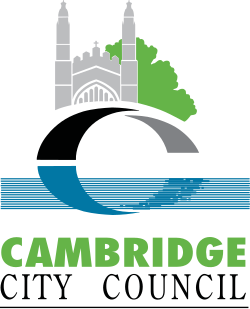

Cambridge experienced first-hand the power of Go Vocal's AI assistant in the analysis of open-ended text responses during their Design Code consultation for northern Cambridge neighborhoods. Discover how it helped the team save 10 precious hours and opened the door for including more free-text questions in future consultations, enriching the depth and quality of community engagement.
The Council saved approximately 10 hours of work, or 50% of the time, on analysis of free-text responses using Go Vocal's AI assistant.
AI-generated summaries of community feedback served as an accurate base for reports, making the creation of official documents easier and enhancing the transparency of the decision-making process.
The tool facilitated a two-phase consultation where residents first shared needs, and then formally validated five principles for improved neighborhood design.
It’s a well-known pain point for engagement practitioners: processing large volumes of qualitative input from community members. This input, rich in detail and diversity, is crucial for informed decision-making, but the analysis poses significant hurdles. Due to the time it takes and its complexity, it is difficult to fully capture and leverage the wealth of information provided by residents. That’s also what Cambridge City Council experienced.
Esther Pickard, Digital and Web Product Manager advises teams who run consultations digitally and explains: “One of our key challenges has been effectively analyzing open-ended feedback from residents. Traditional methods were time-consuming and often led us to shy away from free-text questions in our surveys. This changed with our introduction to Go Vocal's AI assistant. What piqued our interest was its capability to analyze free-text responses and automatically summarize key trends and insights. This functionality looked like a potentially interesting improvement for us, and perfect to use in our Design Code consultation project.”
A Design Code is a set of guidelines that shape the physical development of an area, ensuring that new constructions harmonize with both the character of Cambridge and the aspirations of its community. Therefore, it’s crucial to involve residents in the creation process.
The first phase of this project was about understanding the community’s perceived needs. Using its Go Vocal online consultation and engagement platform, Cambridge invited its residents to share their insights through a survey and pinpoint specific locations on an interactive map with their comments or suggestions. Based on those results, the team formulated five principles for improved neighborhood design.
Esther adds: “In the second phase, we invited our community to give feedback on those principles and whether they were in line with the earlier input through a follow-up survey. We learned about Go Vocal's AI analysis feature right before launching this survey, and thought it was a nice opportunity to test it.”
The AI feature’s impact was immediately evident. Instead of carefully having to go through each response in exported spreadsheets, Cambridge City Council’s consultation team distilled insights and generated a comprehensive report in just a few clicks.
Esther: “Manually analyzing a large number of responses to free-text questions is important but time-consuming. We know from experience that going through close to 100 responses we got from the Design Code survey could easily consume an entire day.”
“Thanks to the AI assistant, we saved about 10 hours, or 50%, in the analysis phase. The tool’s efficiency in processing and summarizing the community’s feedback on the five principles of the Design Code was particularly impressive. It didn’t miss any significant points from the responses we received. The team validated the AI-generated summaries by comparing them with the original responses, finding the tool’s accuracy remarkable.”
“These AI-generated summaries were a good base to develop the reports needed to share with the public and stakeholders. It made the creation of the reports a lot easier and enhanced the transparency and inclusivity of the decision-making process.”
“Thanks to the AI assistant, we saved about 10 hours, or 50%, in the analysis and production of summaries of the community feedback.” - Esther Pickard, Digital and Web Product Manager
Introducing new tools usually involves some challenges, but this wasn’t the case with Go Vocal's AI assistant. From the start, it proved to be easy to understand and user-friendly. Its intuitive design enabled everyone in the consultation process to adopt it without any difficulties.
Esther: “We took some time to explore the AI tool, getting to know its different features and how it works. After we felt comfortable with it, we showed it to our Design Code consultation team, who were very open to trying out AI in their project. After the meeting, they went away and tried it out for themselves. Everyone understood how to use it quite easily and found the tool very user-friendly.”
Looking ahead, the council is eagerly anticipating the use of the AI tool, and discovering more benefits, in future consultations.
Esther: “Given its proven effectiveness, we’re confident that it will continue to play a crucial role in our consultation processes.”
Curious to see Go Vocal's AI assistant in action and discover how it can enhance your consultation processes? Book your demo now!



Innsbruck launched a new digital participation platform and smart engagement strategy that finally brought young residents into the center of decision-making. Within weeks, over 1,000 residents registered, with youth now overrepresented thanks to Proposals that they can easily submit, share with friends, and support. This “gamified” dynamic motivates young people to take part and stay engaged.



When Toronto Centre embarked on its participatory budgeting initiative, it faced a fundamental challenge that many government agencies encounter: how do you meaningfully engage diverse communities in complex decision-making while maintaining administrative efficiency? The solution – a structured, technology-supported approach using Go Vocal – has now successfully allocated over CA$2.25 million across 14 neighborhoods over multiple cycles, creating a replicable model for large-scale community engagement.
